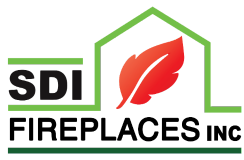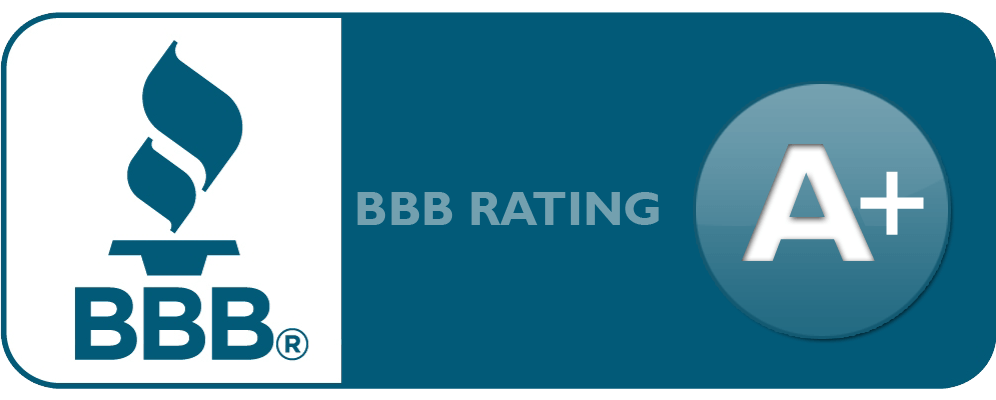Insulation Intelligence
Reference Library
Homeowner's Money Saving Programs
-
BayREN Multi-Family Building Enhancements Program (BAMBE)
Multifamily Property Owners
Save big when you replace old equipment and upgrade your building’s energy and water efficiency.
BayREN offers generous rebates and no-cost technical assistance that allow you to:
Improve your building’s health, comfort and resilience
Comply with energy code standards
Replace outdated equipment with the latest, most efficient technology
Reduce maintenance costs and slash utility bills
Reduce energy and water use
Make your buildings safer, cleaner and greener
Quick Answers for Homeowner's
-
Why Insulate?
Insulating your home is essential for maintaining a comfortable indoor environment. It helps in reducing the amount of heat that escapes during winter and enters during summer. This means your heating and cooling systems don't have to work as hard, leading to increased comfort and reduced energy costs.
-
How will insulation save me money?
Insulation significantly reduces the need for heating and cooling in your home, which can lead to substantial savings on your energy bills. Well-insulated homes use less energy, which not only saves money but also reduces the environmental impact.
-
What’s a Thermal Barrier?
A thermal barrier is a material that is used to slow the transfer of heat. In buildings, it is usually placed in walls, attics, and floors to prevent heat from escaping in the winter and entering in the summer, thus maintaining a steady indoor temperature.
-
What’s Air Sealing?
Air sealing involves identifying and sealing areas where air can leak into and out of your home. These leaks can occur around windows, doors, and even electrical outlets. Sealing these leaks improves energy efficiency and comfort by preventing unwanted air exchange with the outdoors.
-
What’s Moisture Control?
Moisture control is about managing the levels of moisture within your home to prevent problems like mold, mildew, and structural damage. Proper insulation and ventilation are key to maintaining an appropriate balance of humidity.
-
What is Title 24?
Title 24, part 6, of the California Code of Regulations, also known as T24, relates to energy efficiency standards for residential and commercial buildings. It ensures that buildings are constructed with efficient use of energy, including requirements for insulation, windows, and HVAC systems.
-
What’s a HERS Rater?
A Home Energy Rating System (HERS) Rater is a certified professional who conducts energy inspections and testing in homes. They assess the energy efficiency of a home and can provide ratings and recommendations for improvements.
-
What is Building Science?
Building science is the study of the various factors that impact the performance of buildings, including energy efficiency, durability, comfort, and indoor air quality. It involves understanding how different systems within a building interact with each other and the environment.
-
Does Spray Foam Off-Gassing Cause Problems?
Off-gassing can occur with some types of spray foam insulation, releasing chemicals into the air as the foam cures. However, with proper installation and curing, these emissions can be minimized. It's important to follow manufacturer guidelines and use certified installers.
-
What are the Different Types of Spray Foam?
The two main types of spray foam insulation are open-cell and closed-cell foam. Open-cell foam is lighter and more flexible, with a lower R-value per inch. Closed-cell foam is denser, offers higher R-value, and provides additional strength to the structure, as well as resistance to moisture.
-
If SDI does a Cavity Fill, Will They Leave Holes in My Walls and Ceilings?
When performing a cavity fill, small holes are drilled to inject the insulation material. However, SDI takes great care to minimize the impact on your home. Once the insulation is in place, these holes are typically patched and finished to match the existing wall or ceiling surface as closely as possible.
-
What is R-Value?
The R-value of insulation measures its ability to resist heat flow, a crucial factor in maintaining a comfortable home environment. Heat naturally moves from warmer to cooler areas, seeking equilibrium. Insulation acts as a barrier, decelerating this movement. During winter, it effectively reduces heat escape to the chilly outdoors, while in summer, it prolongs the time it takes for outdoor heat to penetrate indoors. However, it's important to note that an insulation's R-value can be influenced by external factors like moisture, compression, ambient temperature, and more, affecting its overall efficiency.
-
Is it possible to add more insulation on top of my existing insulation?
Generally, it's feasible to layer more insulation over your existing setup, provided the current insulation is neither wet nor damaged. Most types can accommodate this addition, notably blown-in cellulose or fiberglass, as well as fiberglass batts. If you're adding onto existing fiberglass batts, it's advisable to lay the new layer perpendicular to the first, ensuring better coverage and sealing of seams. However, avoid using insulation that includes a vapor barrier or kraft facing, as this can lead to moisture being trapped between the layers. If your existing insulation is in poor condition, underperforming, or contains hazardous materials like asbestos, it's essential to have it professionally removed and replaced for optimal safety and effectiveness.
-
What is the lifespan of insulation in a home?
The durability of insulation varies based on the type used. Blown-in options like fiberglass, cellulose, mineral wool, or spray foam are known for their longevity, often lasting several decades or potentially as long as the home itself. On the other hand, fiberglass batts typically have a shorter lifespan, usually around 15 to 20 years. Over time, you might notice the insulation beginning to detach from its facing. However, it's important to remember that the insulation value of fiberglass batts remains consistent unless it becomes wet or suffers damage. Regular checks for these conditions can help ensure your insulation remains effective throughout its lifespan.
Insulation Services
-
Blown Insulation
Blown-in insulation, expertly installed by SDI Insulation Inc., stands out as a highly efficient and adaptable insulation method. This technique involves using specialized machinery to 'blow' fibrous or loose-fill material into wall cavities, attics, and other spaces. One of the key benefits of choosing SDI Insulation Inc. for this task is their proven expertise in ensuring thorough coverage, crucial for optimizing thermal performance. This translates to enhanced energy efficiency, leading to significant savings on utility bills. Blown-in insulation is particularly effective for retrofitting in existing structures, adeptly filling in the smallest gaps and irregular spaces, a feat difficult to achieve with standard batt insulation. Furthermore, the materials used in blown-in insulation often include recycled content, aligning with eco-friendly practices. Opting for SDI Insulation Inc. guarantees that the installation is handled by professionals who are not only skilled in the latest techniques but also adhere to the highest safety standards and building regulations. Their specialized approach ensures the insulation’s effectiveness, durability, and the long-term benefits of a well-insulated home, providing peace of mind and comfort to homeowners.
-
Spray Foam Insulation
Spray foam insulation, when expertly applied by SDI Insulation Inc., offers an advanced and highly effective solution for insulating homes and buildings. This type of insulation involves the application of a liquid foam, which rapidly expands and hardens to form a continuous, airtight barrier. The benefits of choosing SDI Insulation Inc. for spray foam insulation are manifold. Firstly, spray foam provides excellent thermal insulation, significantly reducing heat transfer and leading to marked improvements in energy efficiency. This translates into substantial savings on heating and cooling costs. Additionally, due to its expansive nature, spray foam seamlessly fills cracks, gaps, and crevices, offering superior air sealing compared to traditional insulation methods. This not only prevents drafts and improves indoor comfort but also contributes to a reduction in the infiltration of moisture and allergens. Moreover, SDI Insulation Inc.'s expertise ensures that the spray foam is applied safely and effectively, adhering to the highest standards of quality and compliance with building regulations. Their professional approach guarantees that the insulation not only performs optimally but also contributes to the overall structural integrity and longevity of the building, making it an excellent long-term investment for homeowners seeking both comfort and efficiency.
-
Cellulose Blown Insulation
Cellulose blown insulation, expertly installed by SDI Insulation Inc., is a highly efficient and eco-friendly solution for insulating homes and commercial buildings. This type of insulation is made from recycled paper products, primarily newsprint, treated with non-toxic fire retardants, making it an environmentally sustainable choice. When applied by the skilled professionals at SDI Insulation Inc., cellulose insulation offers exceptional thermal performance, significantly enhancing a building's energy efficiency. This results in considerable savings on heating and cooling costs, as cellulose insulation effectively reduces heat transfer and helps maintain a consistent indoor temperature.
One of the standout features of cellulose blown insulation is its ability to conform to the unique contours of the space being insulated. This ensures a tight, seamless fit, effectively filling in gaps, voids, and hard-to-reach areas that other insulation types might miss. This comprehensive coverage is crucial for preventing air leaks, thereby improving the overall comfort and air quality inside the building. Furthermore, cellulose insulation has excellent sound dampening qualities, contributing to a quieter and more peaceful indoor environment.
Choosing SDI Insulation Inc. for cellulose blown insulation installation guarantees a professional and meticulous approach. Their team adheres to the highest standards of safety and building codes, ensuring that the insulation not only provides optimal thermal performance but also enhances the fire resistance of the structure. By opting for SDI Insulation Inc., homeowners and building managers can rest assured that they are making a smart, sustainable, and cost-effective investment in their property's comfort and energy efficiency.
-
Fiber Glass Insulation
Fiberglass insulation, when installed by the seasoned experts at SDI Insulation Inc., stands as a time-tested and highly effective solution for enhancing the energy efficiency of homes and buildings. Comprising fine strands of glass woven into a lightweight yet dense material, fiberglass insulation is renowned for its ability to minimize heat transfer. This results in significant energy savings, as it effectively retains warmth during colder months and keeps heat out during warmer periods.
One of the key advantages of opting for SDI Insulation Inc. for fiberglass insulation installation is their meticulous attention to detail and adherence to safety protocols. Fiberglass requires careful handling to ensure optimal performance and to minimize any irritation from the fibers. The professionals at SDI Insulation Inc. are adept at installing this material in a way that maximizes its insulative properties while ensuring it is safely and securely in place.
Fiberglass insulation is also versatile, suitable for a range of applications including walls, attics, and floors. Its installation by SDI Insulation Inc. ensures a snug fit in the designated areas, covering gaps and voids that might otherwise lead to energy loss. Furthermore, fiberglass is known for its sound-dampening qualities, contributing to a quieter and more serene indoor environment.
Choosing SDI Insulation Inc. for your fiberglass insulation needs means entrusting your property to a team that combines quality materials with expert installation techniques. Their approach not only enhances the thermal efficiency of a building but also contributes to overall indoor comfort, air quality, and potentially the property's market value, making it a smart investment for both residential and commercial properties.
-
Insulation Removal
Insulation removal by SDI Insulation Inc. is a vital service for ensuring the efficiency and safety of your property. Their expert team specializes in safely removing old, degraded, or contaminated insulation, crucial for maintaining indoor health. With a focus on safety and thoroughness, SDI Insulation Inc. adeptly handles the removal process, ensuring all contaminated or ineffective material is completely cleared out. This step is essential for preparing your space for new, more efficient insulation, contributing to improved energy performance and comfort. By choosing SDI Insulation Inc., you ensure a professional, efficient, and safe insulation removal process, setting the stage for an effective upgrade to your property's insulation system.
-
Rockwool Insulation
- Rockwool insulation, also known as stone wool insulation, is a versatile and widely used insulation material.
- It is typically used to insulate walls, roofs, ceilings, and floors in residential and commercial buildings.
- Rockwool insulation comes in various forms, including batts, rolls, loose-fill, and rigid boards.
- It provides thermal insulation, soundproofing, and fire resistance properties.
- The primary function of Rockwool insulation is to reduce heat transfer and improve energy efficiency in buildings.
-
Rockwool Cavity Rock Insulation
- Rockwool cavity rock is specifically designed for use in masonry cavity walls, which are double-walled constructions typically found in brick or block buildings.
- It is used to fill the air gap (cavity) between the inner and outer walls of the building, providing thermal and acoustic insulation.
- Rockwool cavity rock is typically supplied as rigid boards or batts that are designed to fit snugly within the cavity.
- Its main purpose is to improve the thermal performance of cavity walls, reducing heat loss and enhancing energy efficiency in buildings.
- Rockwool cavity rock may also have water repellent properties to prevent moisture absorption.








